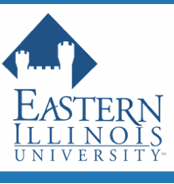Inclusivity in/outside the Classroom
Start Date
16-10-2020 9:00 AM
End Date
16-10-2020 9:50 AM
Document Type
Panel Discussion
Abstract
Webb’s presentation, “It Would Be Excellent if Our Students Become Anti-Racist,” explains how the focus on “rigor” and “excellence” usually provides a subterfuge for protecting the status quo, especially for white faculty and administration who have a hard time discussing racism specifically. “Ontological absence is not remedied by inclusion,” said Carmen Kynard during her keynote at the 2019 Conference on Community Writing in Philadelphia, calling the audience to a higher standard and asking them to push past the easy “diversity and inclusion” mandates that have recently become increasingly popular. Including people of color into white supremacist institutions and curricula is no solution at all. This presentation discusses some foundational changes that must occur in our cognitive frameworks and social narratives in order to make sure our students become excellent citizens first and foremost who don’t write or condone policies that oppress people.
Dabbs’s presentation, “Queer Pedagogy in the Classroom,” examines the ways in which educators can implement queer pedagogy to foster inclusivity in rhetoric and composition as well as literature. Educators can use strategies from queer pedagogy to promote inclusivity in the classroom because it emphasizes the importance of examining and disrupting the processes by which particular subjects become normalized, whereas others marginalized. One example is asking students to read texts “queerly” by examining homosocial spaces and discussing gender binaries in works of literature. Another example is assigning digital projects that rely on multiple modes of communication to disrupt constructions of “normal” writing while also expanding their notions of writing. Ultimately, queer pedagogy provides educators with useful strategies for creating a more inclusive and diverse learning environment.
Fenton’s presentation, “Finding the Stakes in First-Year Writing Assignments” discusses an inclusive assignment sequence used in a first-year writing course, and examines how this set of assignments helps students view their experiences and identities as worthy of academic study and relevant in academic spaces. General education courses, particularly those with skills-based learning outcomes, offer opportunities for instructors to develop assignments and grading criteria that are inclusive to students and affirm the value of first-year students’ unique backgrounds and perspectives in an academic setting. In first-year writing courses, students are asked to practice a variety of academic skills—conducting research, analyzing texts, crafting arguments, etc.—but this practice is made more meaningful when students are able to apply these skills to issues in which they are stakeholders and issues that affect their communities.
Creative Commons License

This work is licensed under a Creative Commons Attribution-Noncommercial-No Derivative Works 4.0 License.
Inclusivity in/outside the Classroom
Webb’s presentation, “It Would Be Excellent if Our Students Become Anti-Racist,” explains how the focus on “rigor” and “excellence” usually provides a subterfuge for protecting the status quo, especially for white faculty and administration who have a hard time discussing racism specifically. “Ontological absence is not remedied by inclusion,” said Carmen Kynard during her keynote at the 2019 Conference on Community Writing in Philadelphia, calling the audience to a higher standard and asking them to push past the easy “diversity and inclusion” mandates that have recently become increasingly popular. Including people of color into white supremacist institutions and curricula is no solution at all. This presentation discusses some foundational changes that must occur in our cognitive frameworks and social narratives in order to make sure our students become excellent citizens first and foremost who don’t write or condone policies that oppress people.
Dabbs’s presentation, “Queer Pedagogy in the Classroom,” examines the ways in which educators can implement queer pedagogy to foster inclusivity in rhetoric and composition as well as literature. Educators can use strategies from queer pedagogy to promote inclusivity in the classroom because it emphasizes the importance of examining and disrupting the processes by which particular subjects become normalized, whereas others marginalized. One example is asking students to read texts “queerly” by examining homosocial spaces and discussing gender binaries in works of literature. Another example is assigning digital projects that rely on multiple modes of communication to disrupt constructions of “normal” writing while also expanding their notions of writing. Ultimately, queer pedagogy provides educators with useful strategies for creating a more inclusive and diverse learning environment.
Fenton’s presentation, “Finding the Stakes in First-Year Writing Assignments” discusses an inclusive assignment sequence used in a first-year writing course, and examines how this set of assignments helps students view their experiences and identities as worthy of academic study and relevant in academic spaces. General education courses, particularly those with skills-based learning outcomes, offer opportunities for instructors to develop assignments and grading criteria that are inclusive to students and affirm the value of first-year students’ unique backgrounds and perspectives in an academic setting. In first-year writing courses, students are asked to practice a variety of academic skills—conducting research, analyzing texts, crafting arguments, etc.—but this practice is made more meaningful when students are able to apply these skills to issues in which they are stakeholders and issues that affect their communities.





Speaker Information
Lan Dong
Professor of English, University of Illinois Springfield, Springfield, IL
Sarah Webb
Assistant Professor of English, University of Illinois Springfield, Springfield, IL
Nicholas Dabbs
Adjunct Instructor of English, University of Illinois Springfield, Springfield, IL
Scott Fenton
Instructor of English, University of Illinois Springfield, Springfield, IL